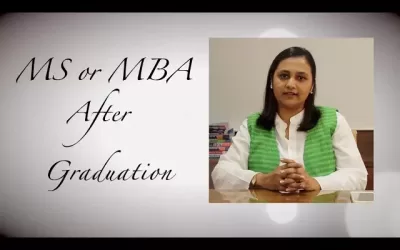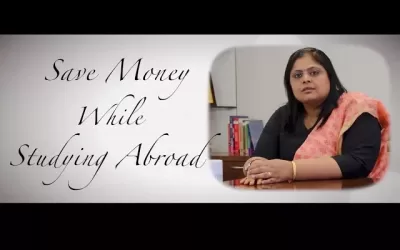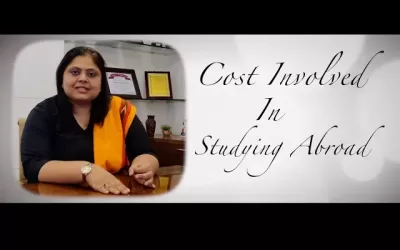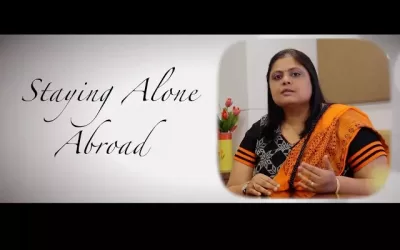Debunking Common Myths About Studying Abroad: Separating Fact from Fiction
Myths About Studying Abroad: Many misconceptions about studying abroad discourage students. They mistakenly believe that living and studying abroad is a luxury they cannot afford. This episode breaks a few myths about studying abroad. People think studying abroad is expensive.
 The cost varies depending on the programme or degree type, location, length of stay, and university ranking. Funding options like scholarships and grants and working part-time can help reduce costs. It is also a myth that universities do not accept international students easily. It is essential to apply to universities according to your profile.
The cost varies depending on the programme or degree type, location, length of stay, and university ranking. Funding options like scholarships and grants and working part-time can help reduce costs. It is also a myth that universities do not accept international students easily. It is essential to apply to universities according to your profile.
Most students who meet the minimum qualifications and complete the application process on time are accepted into universities. Many people also think that it is necessary to speak a second language. Still, it is not compulsory unless the course demands it or if you are studying abroad in a non-English-speaking country.
Foreign countries that are unsafe for women are another myth, but it is essential to be aware, understand the area you are staying in, and also know the laws of the host country. Many people also feel that getting a job that gives adequate returns on investment is difficult. However, companies always aim to recruit competent, hard-working people who can adjust and do well in multi-cultural environments.
Frequently Asked Questions For Myths About Studying Abroad
1. Myth: Studying abroad is only for wealthy students.
Fact: While studying abroad can be expensive, there are various scholarship opportunities, grants, and financial aid options available to make it accessible to a broader range of students.
2. Myth: Studying abroad is only for language majors.
Fact: Many study abroad programmes offer courses in English and cover a wide range of disciplines, allowing students from various majors to participate.
3. Myth: Studying abroad significantly delays graduation.
Fact: With proper planning and coordination between your home and host institutions, you can often study abroad without delaying your graduation timeline.
4. Myth: Studying abroad is unsafe.
Fact: Like anywhere else, safety can vary based on location, but study abroad programmes usually have safety measures, and many students have positive and safe experiences abroad.
5. Myth: The language barrier makes studying abroad tricky.
Fact: While language can be a factor, many countries offer programmes in English. Additionally, immersing yourself in a new language can be a valuable learning experience.
6. Myth: Studying abroad is only for outgoing students.
Fact: Studying abroad can benefit all types of students, regardless of their personalities. It’s a chance for personal growth and self-discovery.
7. Myth: Credits earned abroad won’t transfer back home.
Fact: If you plan and work closely with your home institution’s advisors, you can often ensure that your credits earned abroad will transfer smoothly.
8. Myth: Studying abroad is all about partying and having fun.
Fact: While studying abroad can be enjoyable, it’s also a valuable educational experience that involves adapting to new cultures and learning from different perspectives.
9. Myth: Only certain countries offer quality education abroad.
Fact: Quality education can be found in many countries. Research the specific programmes and universities to find the best fit for your academic and personal goals.
10. Myth: Studying abroad is just a vacation.
Fact: Studying abroad requires a balance between academics and exploration. It’s an opportunity to immerse yourself in a new culture while still focusing on your studies.
11. Myth: Study abroad is only for undergraduate students.
Fact: Many study abroad programmes are also available for graduate students and professionals looking to enhance their skills and experiences.
12. Myth: Applying for study abroad programmes is too complicated.
Fact: While there are application requirements, most study abroad offices provide assistance and guidance throughout the application process.
13. Myth: Studying abroad is irrelevant to my major or career.
Fact: The skills you gain, such as adaptability, cross-cultural communication, and independence, are highly valued by employers in various fields.
14. Myth: I’ll miss out on events and opportunities at my home university.
Fact: Studying abroad can offer unique events and opportunities, and you can stay connected with your home university community through various means.
15. Myth: It’s too late to study abroad if I missed the opportunity in my earlier years.
Fact: Many programmes cater to different stages of education and life, including short-term and graduate-level opportunities.
Remember that when studying abroad, myths often stem from outdated information or misconceptions. Researching and communicating with study abroad advisors is essential to making informed decisions about your study abroad journey.






